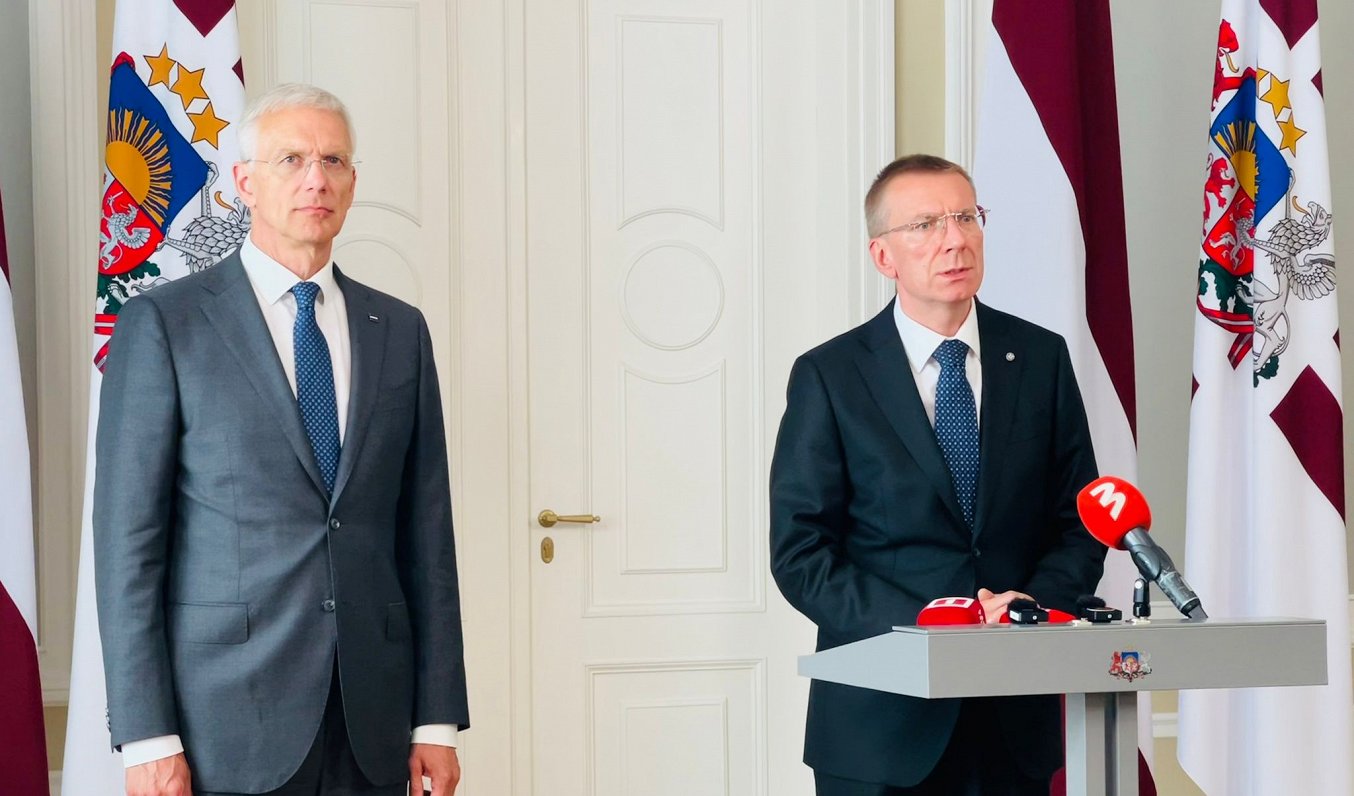Speaking at Rīga Castle after talks with parties New Unity, the National Alliance, Greens and Farmers Union (ZZS), Progressives, and United List, the head of state confirmed that there was no realistic prospect of all of them putting aside their differences and teaming up.
However, he added that even a four-party coalition would be preferable to the three-party coalition that remains in power in a caretaker capacity following the resignation last week of Prime Minister Krišjānis Kariņš.
Indeed, it was Kariņš own efforts to form a five-party coalition that led to the current crisis, so Rinkēvičs' appears to have been unable to persuade parties to be more flexible. The right-of-center National Alliance in particular is known to object to working with the left-of-center Progressives on ideological grounds, but other tensions between and within parties are also factors.
Despite the lack of agreement Rinkēvičs wants to discuss government formation with the parties again, because he believes that a wider coalition is possible, and the wider the better.
However, the president admitted that he respects the ideological differences of the parties, and joked that he is not going to imprison anyone in Rīga Castle as a conclave until a decision is made – a quip based on the Vatican's method of choosing a Pope.
"I will not draw any red, black, purple or other colored lines within the framework of these parties," the president said, referencing the frequent political talk of 'red lines' which has become almost a comical refrain among society at large.
"Politics also needs competition," said the president, noting that he does not rule out that two or even three possible coalition scenarios might develop over time.
But he suggested that a smaller coalition with only 52, 53 or 54 votes in Saeima would likely mean that "sooner or later, in one way or another, all these old problems will start again".
The president said that he thinks that he will not make a decision on Wednesday about nominating a potential prime minister to try to form a workable government, but he also promised not to delaysuch a move – without specifying his exact deadlines.




























